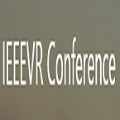As virtual reality (VR) devices become increasingly integrated into everyday settings, a growing number of users without prior experience will engage with VR systems. Automatically detecting a user's familiarity with VR as an interaction medium enables real-time, adaptive training and interface adjustments, minimizing user frustration and improving task performance. In this study, we explore the automatic detection of VR familiarity by analyzing hand movement patterns during a passcode-based door-opening task, which is a well-known interaction in collaborative virtual environments such as meeting rooms, offices, and healthcare spaces. While novice users may lack prior VR experience, they are likely to be familiar with analogous real-world tasks involving keypad entry. We conducted a pilot study with 26 participants, evenly split between experienced and inexperienced VR users, who performed tasks using both controller-based and hand-tracking interactions. Our approach uses state-of-the-art deep classifiers for automatic VR familiarity detection, achieving the highest accuracies of 92.05% and 83.42% for hand-tracking and controller-based interactions, respectively. In the cross-device evaluation, where classifiers trained on controller data were tested using hand-tracking data, the model achieved an accuracy of 78.89%. The integration of both modalities in the mixed-device evaluation obtained an accuracy of 94.19%. Our results underline the promise of using hand movement biometrics for the real-time detection of user familiarity in critical VR applications, paving the way for personalized and adaptive VR experiences.
翻译:暂无翻译





